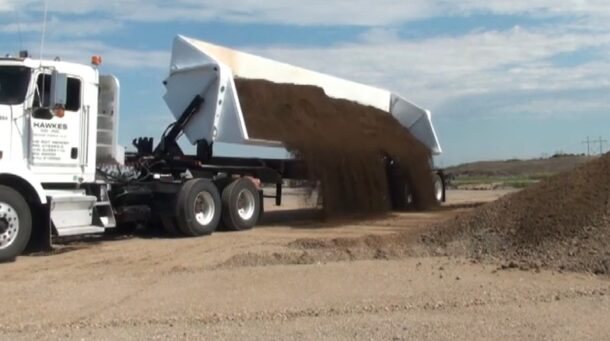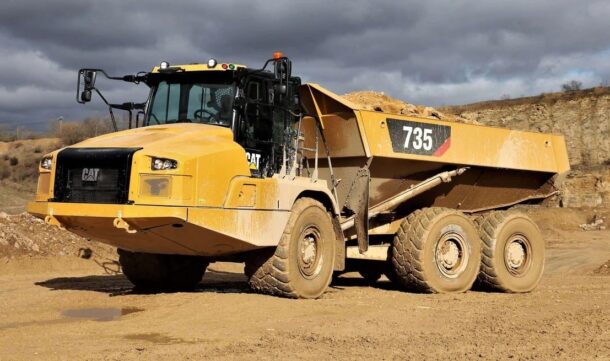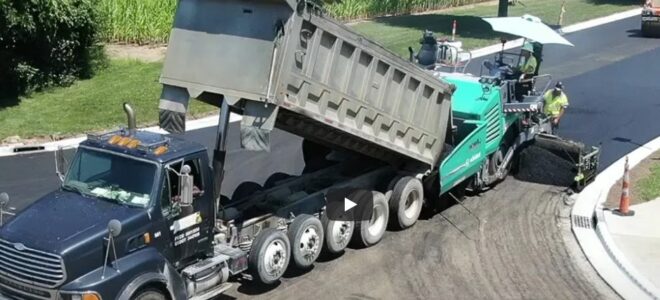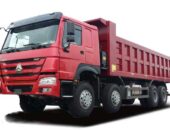Dump trucks are the workhorses of the construction industry. They carry, unload, and move heavy material daily across countless job sites. Choosing the right one means smoother operations, fewer delays, and lower costs. This guide covers what matters—types, sizes, and how each truck fits specific construction needs.
Why Dump Trucks Matter in Construction
Dump trucks handle what most machines can’t: bulk movement of material. Dirt, gravel, sand, rubble, and debris—they haul it all. Without them, no project progresses past excavation.
Operators and site managers know that these trucks impact cost, time, and project safety. Picking the wrong type can slow down everything. Picking the right one speeds up progress and reduces wear on other equipment.
For those managing projects in Tennessee, local access matters. Memphis Dump Truck Rentals offer reliable options built for serious earthwork. Backed by years of experience, the Memphis Earth Movers team delivers precision and power for both short- and long-term jobs. Whether you’re breaking ground on a commercial build or clearing land for infrastructure, having access to the right fleet makes a difference.
Major Types of Dump Trucks
Each truck type brings specific strengths to the jobsite. The right one depends on terrain, hauling volume, and how the material needs to be moved. Below are the most common categories you’ll see on heavy-duty sites, each designed to solve a different problem.
1. Standard Dump Trucks
These are the classic dump trucks most people picture first. They feature a powerful hydraulic lift system that tips the rear bed up to unload material directly behind the vehicle. The simple setup makes them reliable and easy to operate. With a shorter wheelbase than other types, they offer solid maneuverability, even on job sites with tight access. Standard dump trucks are a go-to for general contractors working in residential or light commercial settings. They’re best for transporting loads over short distances or within job zones where speed and control matter more than capacity.
Best for:
- Short hauls
- Job sites with limited space
- Material transport in urban areas
2. Articulated Dump Trucks
These trucks are built for the most demanding off-road environments. The articulated design—where the cab and dump body are connected by a pivot joint—lets the vehicle bend around tight corners and navigate uneven surfaces. They shine in rough terrain where standard trucks can’t safely operate. Often used in mining, forestry, or large-scale excavation, articulated trucks can move heavy loads across soft ground without getting stuck. They’re also more stable on inclines, thanks to their flexible frame and all-wheel drive.
Advantages:
- Better maneuverability on off-road sites
- High load capacity
- Superior traction
Downside: Not ideal for narrow or urban routes
3. Transfer Dump Trucks
Transfer trucks offer a smart balance between mobility and payload. They feature a standard dump truck body that tows a separate trailer with an extra load container. The container can be transferred into the main body via a conveyor belt or transfer mechanism, boosting the total haul without compromising truck length or steering ability. These are ideal for contractors who need to move large amounts of material without using multiple trips or oversized equipment.
Best used when:
- Hauling large loads
- Needing flexibility without sacrificing mobility
4. Super Dump Trucks
Super dumps take payload efficiency to another level. They come with additional axles that can be raised or lowered as needed to support extra weight while staying within road-legal limits. These trucks haul more per trip than traditional dump trucks but don’t require special permits. That makes them incredibly cost-effective for jobs that involve large quantities of asphalt, gravel, or construction debris. Contractors looking to maximize per-load efficiency often prefer super dumps to reduce fuel usage and time on the road.
Why choose them:
- High payload and efficiency
- Legal for public roads despite size
5. Side Dump Trucks

Source:youtube.com
These trucks unload by tilting the bed to the side instead of the rear. The design reduces the risk of tipping over during dumping and allows operators to unload in narrow or confined areas. This makes side dump trucks safer in environments where space is tight, or material needs to be spread alongside the vehicle. They’re also popular for applications that require quick, repeated unloading cycles. The side-dump action is faster than a traditional rear lift and can speed up work significantly on fast-moving projects.
Ideal for:
- Narrow work zones
- Fast unloading with reduced tipping risk
6. Off-Highway Dump Trucks
These giants are built for specialized, high-volume jobs far away from public roads. You’ll find them in open-pit mines, quarries, and massive infrastructure developments where moving thousands of tons daily is the norm. Off-highway dump trucks feature enormous wheels, reinforced suspension, and dump bodies designed for extreme weight. Their size requires trained operators and on-site maintenance teams. Because they’re expensive to buy and maintain, many firms rent them on a per-project basis.
Key traits:
- Enormous capacity
- Designed for extreme-duty tasks
- Expensive to own, often rented
Every dump truck type plays a role in project success. Choosing the right one isn’t about guesswork—it’s about understanding terrain, volume, load material, and site access. Get that right, and you boost productivity across the board.
Sizes and Load Capacities
Dump trucks range widely in size. One size does not fit all. Load capacity, axle number, and weight ratings influence performance and legality.
1. Small Dump Trucks
Often single-axle, they’re useful for landscaping and smaller renovation projects. They handle narrow driveways and tight areas.
- Capacity: 5,000–6,000 lbs
- Best for: residential construction, light hauling
2. Medium Dump Trucks
These include tandem or tri-axle configurations. Perfect for mid-sized commercial projects, road work, and multi-load jobs.
- Capacity: 13,000–20,000 lbs
- Flexible enough for mixed terrain
3. Large Dump Trucks
Used in mining or highway construction. Most are off-road units or super dumps built to stay within legal limits while maximizing volume.
- Capacity: 26,000+ lbs
- Best for high-volume, heavy-duty earthmoving
Gross Vehicle Weight Rating (GVWR) defines legal road use. Exceeding GVWR can lead to fines, vehicle damage, or worse. Always check it before hauling.
Factors That Influence Dump Truck Selection
Choosing the right truck requires more than knowing the load size. Terrain, distance, and material type matter just as much. Key questions to ask:
- What material needs to be hauled—sand, rock, dirt, demolition debris?
- How far is the haul?
- Is the route paved or rough?
- Are there space limitations?
- Will you use the truck daily or occasionally?
If you face fluctuating project needs, rentals can save serious money. You avoid long-term maintenance and storage costs.
How Dump Trucks Support Construction Efficiency

Source: linkedin.com
Dump trucks streamline construction in ways few machines can match. They are not just transport vehicles—they are time-savers, cost-cutters, and project enablers. Without them, materials pile up, workflows stall, and crews waste valuable hours waiting.
During site preparation, excavators do the digging, but dump trucks do the hauling. They carry away soil, brush, and debris fast, keeping excavation areas open and clear. Without dump trucks, teams spend extra hours repositioning equipment and working around clutter. This slows down grading, trenching, and drainage setup.
Dump trucks also deliver material right where it’s needed—gravel for driveways, sand for leveling, or fill dirt for elevation. On large jobs, timing is everything. Delayed material delivery leads to idle workers, stalled machines, and scheduling conflicts with subcontractors. Reliable dump trucks eliminate that problem.
In demolition and waste handling, dump trucks haul away broken concrete, asphalt, and scrap material that can’t be reused. This clears the way for foundation pours, framing, and paving. A clean site is a safer site.
Every haul reduces costs. Fewer trips mean lower fuel use. Faster turnaround means less time on the clock. An efficient fleet helps contractors stay under budget and ahead of schedule.
When to Rent Instead of Buy
Buying dump trucks costs six figures. Repairs, licensing, and storage add more. For short-term jobs or occasional use, renting is smarter.
Benefits of renting:
- Avoids upfront purchase costs
- No long-term maintenance burden
- Access to updated models
- Flexible fleet size for seasonal projects
- Easy upgrades based on load needs
Contractors often rotate between project scales. Renting allows flexibility without draining cash flow.
Wrap-Up: Dump Trucks Are the Backbone of the Jobsite
No heavy construction job gets done without dump trucks. From excavation to finish work, they move the materials that shape buildings, roads, and infrastructure.
Whether you’re overseeing your first project or managing a long-term development, know your trucks. Pick the right type. Match size to terrain and material. And when in doubt, rent from a trusted provider with proven support.




